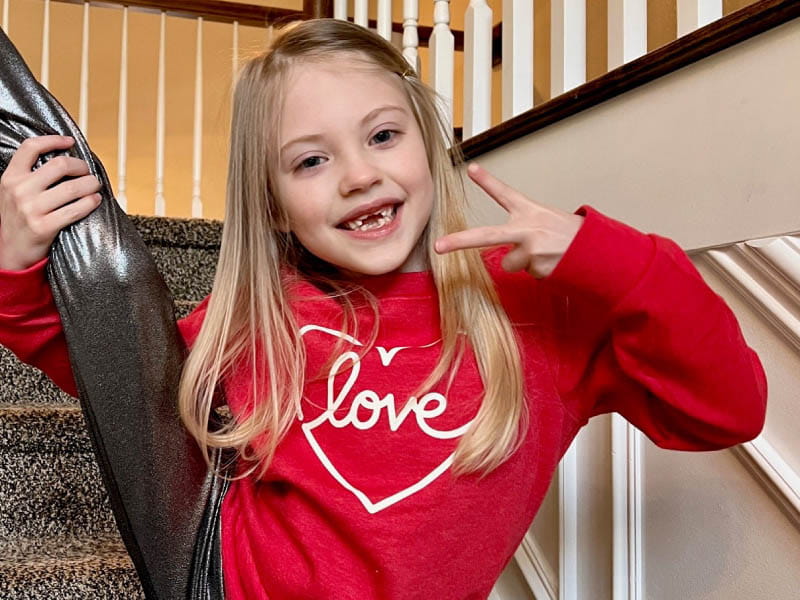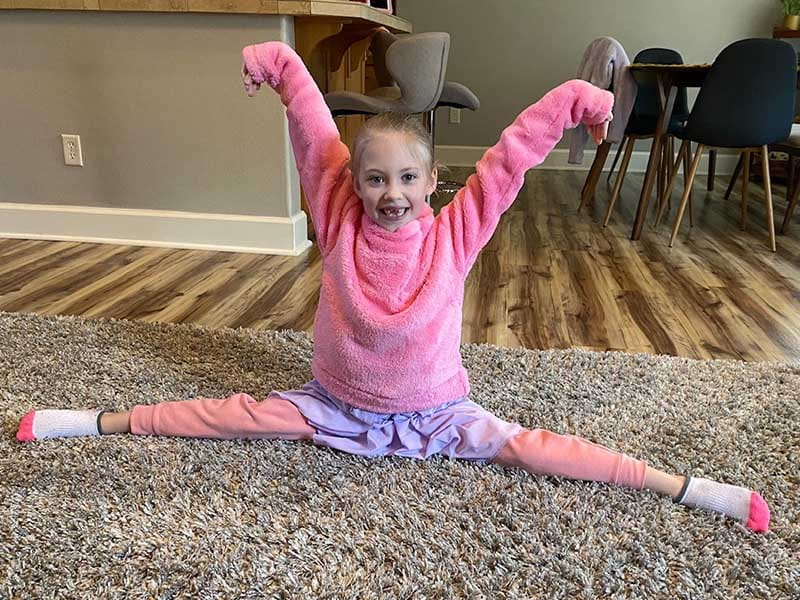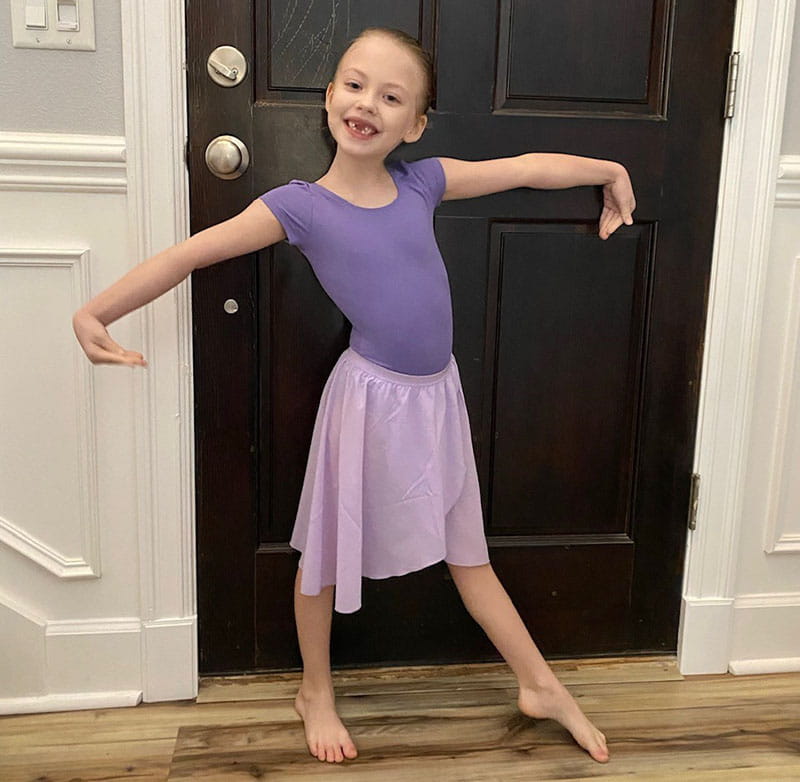At 5, she had near total heart block. Now, a 'generator' powers her heart.
By Deborah Lynn Blumberg, American Heart Association News

Kindergartener Sophia Schilpp came home from school gripping her temples. Her head was pounding, and the pain made her throw up. She snuggled on the couch with her favorite pineapple blanket, an ice pack on her head.
Her mother, Shannon, thought it was a migraine, like the ones she often got. The next day, she took her "Sophie-Bear" to the doctor. He noticed Sophia's low heart rate and that her chart showed it had been well below average during her last few visits.
"I'll never forget seeing her next to me happy as she could be, and trying not to show her how scared I was," Shannon said. Sophia had been born healthy and rarely got sick. Though she often got tired after playing, Shannon and her husband, Jeff, of Redmond, Oregon, assumed it was just who she was.
The pediatrician referred the family to a cardiologist. At the appointment, the limber and athletic Sophia smiled and danced around the room. The doctor hooked her up to an electrocardiogram machine that showed she had a condition called heart block.
Heart block is a heart rhythm disorder. It happens when the electrical signal that controls the heartbeat is partially or completely blocked. The extent is measured in three degrees, from mildest to most serious.
The doctor gave Sophia a special monitor to wear for a few weeks to determine her degree. The device was itchy and uncomfortable, and Sophia tolerated it for three days.
Two weeks later, Shannon was on the way to pick her up from school when the cardiologist called with the results. She pulled over to the side of the road.
Sophia had an almost complete third-degree heart block. This helped explain why she got increasingly sleepy and grumpy after school. An echocardiogram showed no structural issues, rare for people with heart block.
"Her heart was doing everything it could to give her enough energy," Shannon said.
She immediately called Jeff. "I thought, 'How could this happen to us? And what does life look like for her going forward?'" he said.
Still processing the doctor's information, Shannon pulled up to school and watched Sophia in the pickup line, twirling and jumping around with her friends.
"I thought, 'This cannot actually be true. Here's my child and she looks absolutely healthy,'" Shannon said.

The cardiologist referred the family to a pediatric cardiologist three hours away in Portland who specializes in electrical heart issues. Over Zoom, the new doctor said Sophia needed a pacemaker. They scheduled surgery for the following week, less than two months after she went to the first cardiologist.
Shannon and Jeff found cartoons that explained surgery. "Her most predominant question was, 'Is it going to hurt?'" Shannon said, "and I hoped not."
The hotel in Portland felt like a vacation for Sophia. She was captivated by a tram ride from the hospital parking lot to the facility.
"She found places within this really scary event to enjoy it and treat it like an adventure," Shannon said.
The surgery took two hours. Three days later, she went home.
Sophia was up and about a week after surgery, but stayed home for six weeks. She returned to school for half days at first.
Before Sophia returned, her teacher set up a Zoom meeting so the girl could show her classmates her incision. It was important for everyone to understand they needed to be more careful around Sophia because rough play could knock the pacemaker's small wires out of place.
"I wasn't totally sure if she was ready to go back, and I didn't want to push her," Shannon said. "But after that first week, she wanted to stay all day. She had the energy of any other 5-year-old."
Now, powered by the device she sometimes calls her "generator," 6-year-old Sophia has more energy than ever. She's doing ballet and loves to dance and sing and do cartwheels and somersaults. While she'll eventually need a new pacemaker, that likely won't be before she's 10.

"She's happy, healthy and really enjoying life," Jeff said.
While some parents of kids with pacemakers let them participate in contact sports, Shannon thinks it's too risky. Sophia likely won't be an Olympian or professional basketball player, "but there are things that she can participate in."
There are other concerns, from fears that she'll get teased about her scar to technology issues. Because of possible interference with her device, Sophia can't have a tablet within six inches of her abdomen.
"I just hope that as a young adult she's surrounded by people who are really understanding of her and don't make her feel different or weird," Shannon said.
Shannon found solace in online groups of parents whose kids have similar conditions. One story stood out – a 25-year-old in great health with a case similar to Sophia's.
"There's a sense of safety in a community like that," Shannon said. "When your mind wanders, you can go back to the facts."
The family also focuses on gratitude, she said. "We try to remain in the present and be really … grateful for every step that's been taken to get us to the point where her heart is now safe."
Stories From the Heart chronicles the inspiring journeys of heart disease and stroke survivors, caregivers and advocates.
If you have questions or comments about this story, please email [email protected].







